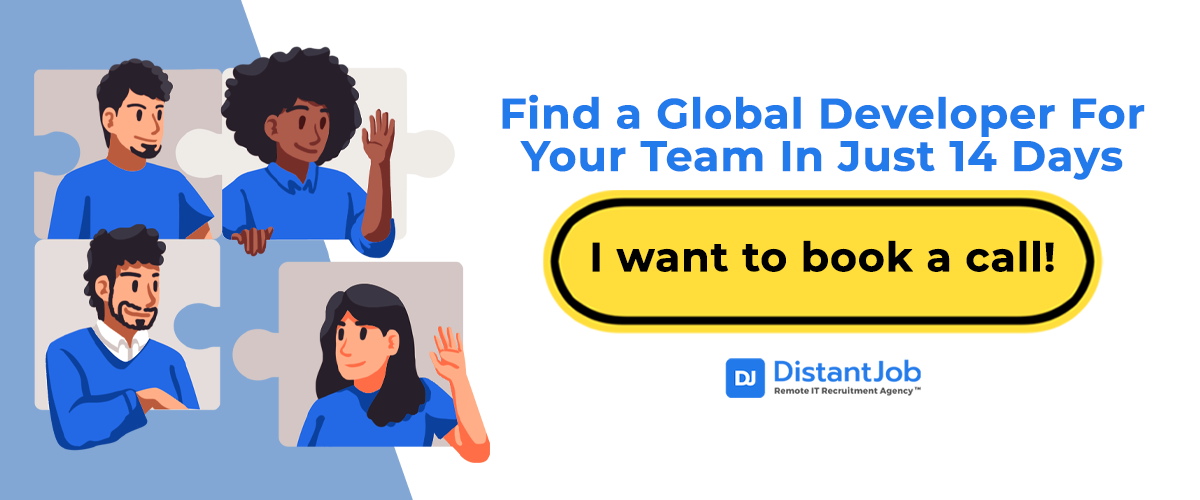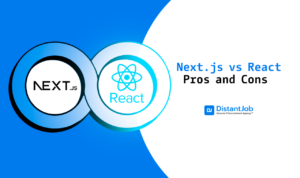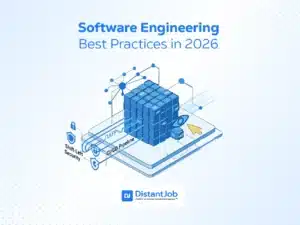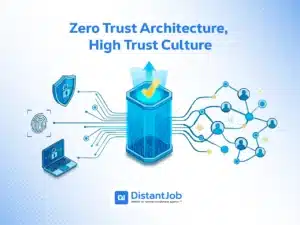In the era of digital globalization, companies are increasingly relying on remote developers to power their software projects, emphasizing the heightened importance of maintaining stringent information security protocols. Whether you’re an enterprise seeking the expertise of a foreign specialist or a startup looking to tap into the diverse talent pool across continents, one crucial tool can act as your first line of defense: the Non-Disclosure Agreement (NDA).
IP theft is a prevalent concern in today’s digital landscape. According to a 2020 intellectual property report from the World Intellectual Property Organization (WIPO), around 25% of global trade value comes from IP-intensive industries.
Implementing NDAs helps safeguard sensitive information and proprietary technology from being misused or stolen when hiring remote developers.
In this guide, we’ll delve deep into the nuances of NDAs, helping you navigate the intricate waters of protecting your software’s integrity and the value of your intellectual assets.
Jump To:

What is an NDA and Why Is It Important in Remote Dev Teams?
A Non-Disclosure Agreement (NDA), often called a confidentiality agreement, is a legally binding contract between parties to protect sensitive or proprietary information from being disclosed to unauthorized individuals or entities.
Essentially, it’s a promise to keep specific details, often ‘confidential information,’ a secret. Concerned parties sign this document in a remote work setting using a handwritten signature generator to confirm their mutual agreement.
In the context of software development, this confidential information might include:
- Software source code
- Architectural diagrams
- Business strategies related to the software
- User data
- Algorithms
- And more
The rise of remote working and the global hiring of developers has expanded business horizons and introduced potential risks.
With geographical distance and varied jurisdictions, there can be challenges in ensuring that proprietary software and associated information remain confidential. This is where NDAs come into play.
For remote developers, an NDA:
- Sets Clear Boundaries: It defines what information they can and cannot share outside the confines of the project.
- Promotes Trust: By signing an NDA, a developer indicates their commitment to respecting the company’s intellectual property.
- Safeguards the Company: An NDA provides legal recourse for the aggrieved party in the unfortunate event of a breach.
- Provides Clarity: Clearly defined terms in an NDA can help prevent misunderstandings, setting the stage for a successful collaboration.
In essence, as businesses navigate the global talent pool, NDAs act as a safety net, ensuring that potential risks to intellectual property do not overshadow the advantages of hiring remote developers.
Are There Types of NDAs?
NDAs are essential legal contracts that protect confidential information from being disclosed without permission. When dealing with remote developers, NDAs can be a crucial tool in ensuring proprietary information security. Let’s dive into the types and their applications:
1. Unilateral NDAs (One-Way Agreement):
- Definition: In a unilateral NDA, one party (typically the hiring company or client) discloses certain confidential information to another party (the remote developer) and requires them to keep that information confidential.
- Common Use Cases: These are most often used when a company is hiring a remote developer for a specific project and wants to protect its proprietary information, trade secrets, software code, or business plans from being disclosed or used outside of that project.
- Benefits: They’re straightforward and specific to one-sided information sharing, which makes them simpler to draft and execute.
- Drawbacks: It doesn’t protect if the hiring company needs to receive confidential information from the developer (e.g., a unique coding method or technique the developer has crafted).
2. Mutual NDAs (Two-Way Agreement):
- Definition: In a mutual NDA, both parties agree not to disclose confidential information shared between them. This means the hiring company and the remote developer are bound to keep secrets from being disclosed.
- Common Use Cases: These are useful when both parties share sensitive information. This might be the case when a company is co-developing software with an external developer or when the developer has their own proprietary tools, methods, or techniques they’ll be using in the project.
- Benefits: Both parties are protected, fostering a sense of mutual trust. It’s often more equitable, which can help build better business relationships.
- Drawbacks: They can be more complex due to the need to define and protect confidential information on both sides, potentially leading to longer negotiations.
Practical Tips For A Smooth NDA Process
To ensure a seamless NDA process, keep these strategies in mind:
- Open Communication: Discuss its components with your developer before presenting the NDA. Ensure they understand its importance and address any concerns they might have.
- Use A Professional Template: While you can draft an NDA from scratch, starting with a professional template can ensure all legal bases are covered. Modify as needed to fit your specific project.
- Regularly Review And Update: As your project evolves, so might the information you’re sharing. Regularly review your NDA to ensure it remains relevant and comprehensive.
- Language And Translation: If there is a language barrier between you and your remote developer, ensure that the NDA is accurately translated into their native language. This is crucial to guarantee clear communication, proper understanding, and enforceability of the agreement.
Final Thoughts
In the era of remote work and global collaborations, NDAs have become indispensable software development tools. They’re not just about protecting ideas but about fostering trust, setting expectations, and ensuring a smooth working relationship.
By understanding their components, leveraging digital tools like the handwritten signature generator, and respecting cultural nuances, you can create a solid foundation for success with your remote developers. Secure your software and ideas, but remember, it’s a partnership built on mutual respect and trust.




